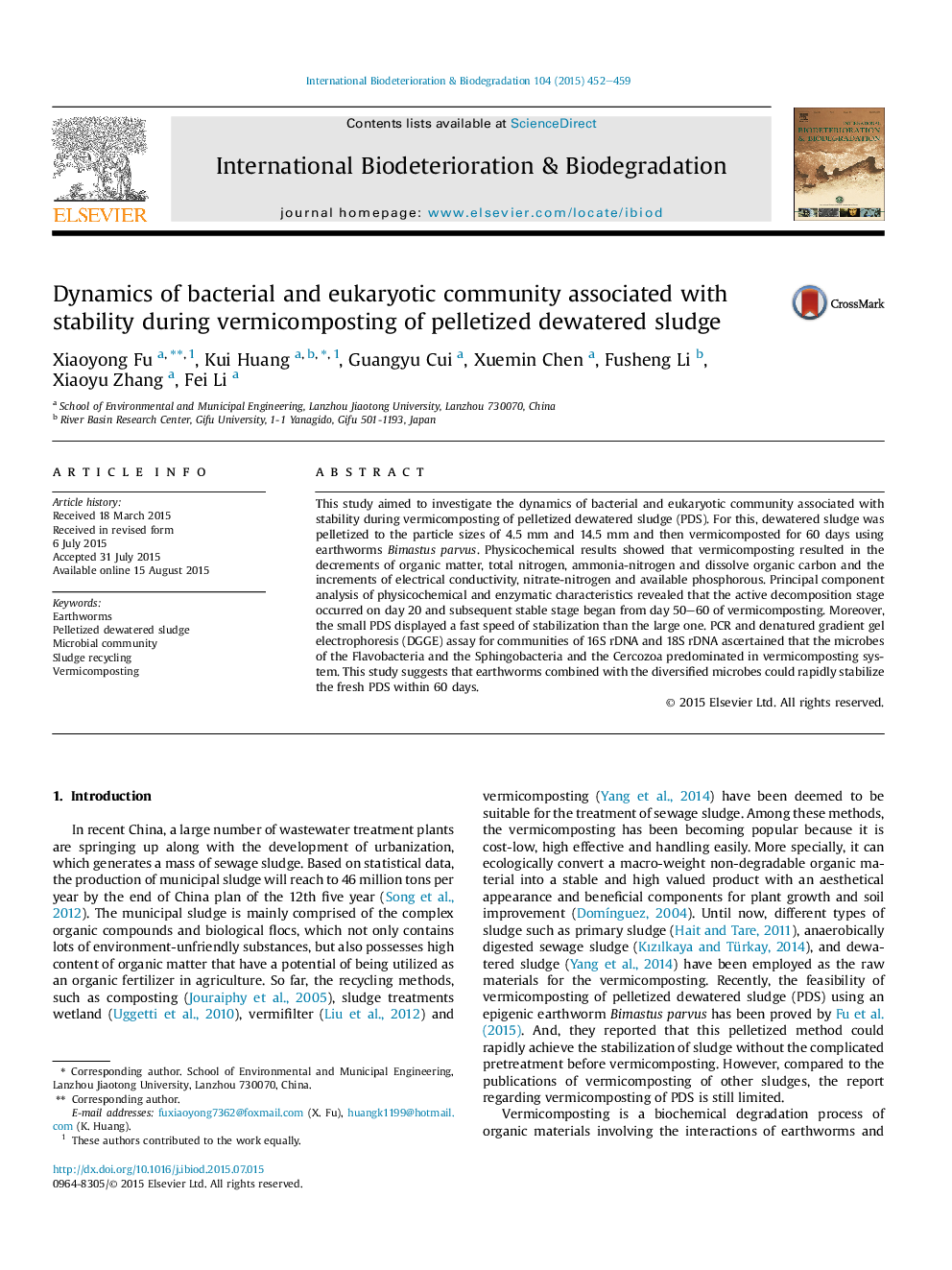| Article ID | Journal | Published Year | Pages | File Type |
|---|---|---|---|---|
| 4364511 | International Biodeterioration & Biodegradation | 2015 | 8 Pages |
•The microbial activity was rapidly raised from day 10–20 of vermicomposting.•The stable stage was found from day 50–60 of vermicomposting.•Small PDS displayed a fast speed of stabilization than large one.•The Flavobacteria, Sphingobacteria and Cercozoa were dominant.
This study aimed to investigate the dynamics of bacterial and eukaryotic community associated with stability during vermicomposting of pelletized dewatered sludge (PDS). For this, dewatered sludge was pelletized to the particle sizes of 4.5 mm and 14.5 mm and then vermicomposted for 60 days using earthworms Bimastus parvus. Physicochemical results showed that vermicomposting resulted in the decrements of organic matter, total nitrogen, ammonia-nitrogen and dissolve organic carbon and the increments of electrical conductivity, nitrate-nitrogen and available phosphorous. Principal component analysis of physicochemical and enzymatic characteristics revealed that the active decomposition stage occurred on day 20 and subsequent stable stage began from day 50–60 of vermicomposting. Moreover, the small PDS displayed a fast speed of stabilization than the large one. PCR and denatured gradient gel electrophoresis (DGGE) assay for communities of 16S rDNA and 18S rDNA ascertained that the microbes of the Flavobacteria and the Sphingobacteria and the Cercozoa predominated in vermicomposting system. This study suggests that earthworms combined with the diversified microbes could rapidly stabilize the fresh PDS within 60 days.
Graphical abstractFigure optionsDownload full-size imageDownload as PowerPoint slide
